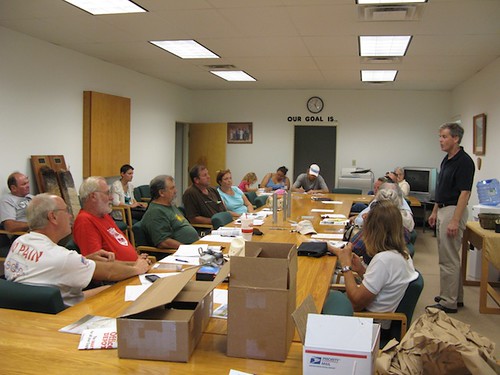
Our mission is to enhance our rural and urban areas and agricultural communities by supporting grassroots efforts and creating partnerships for the benefit of our 12 county region. We strive to improve quality of life for our rural and urban communities through education and partnerships and the wise management of natural resources.
Monday, July 25, 2011
Final Food Safety Meeting with TVGA
The flyer is available for download under the resources page.
Tuesday, July 19, 2011
WVU Organic Farm Field Day
West Virginia University’s Division of Plant and Soil Sciences is hosting its 12th annual
Organic Field Day on Thursday, August 4, at the WVU Organic Research Farm located on Rt. 705 in Morgantown, WV. The Field Day is open to the public and anyone interested in organic farming is encouraged to attend. The Field Day will include a wagon tour of research and demonstration plots emphasizing transitional practices for growers considering converting from conventional to organic practices.
New this year will be a symposium on organic management for Brown Marmorated Stink
Bug, and a project on sheep health and nutrition. We also have work on organic egg production, additional trials for sustainable biofuel crop production, and crop variety trials on blackberry, tomato, pepper, bean, lettuce, squash and watermelon. Intensive workshops will be conducted on insect, disease and weed identification and management, livestock, poultry, and pasture management, marketing, and much more!
Please register in advance for the workshops so the presenters can prepare adequate
handouts, etc. A dinner featuring organic produce grown on the Farm is planned for 6:00 PM that evening. If you’re interested in learning more about organic farming, some of the practices used, or are just curious as to what it’s all about, feel free to stop out and enjoy the evening with us! Gates will open Thursday, August 4th at 1:00 PM and will close at 7:00 PM. You are encouraged to pre-register via e-mail (plantandsoil@mail.wvu.edu ) by returning the attached registration form, or by calling Tessy Warnick at 304-293-2961.
For more information, call Dr. Jim Kotcon at 304-293-8822. We hope to see you there!
Directions to the WVU Organic Research Farm:
From I-68, take Exit 7 and go west on Rt. 857, 1 mile to Rt. 119 (second stop light).
Turn Left onto Rt.119 (south) for 1.5 mile.
At the second stop light, turn right onto Rt. 705.
Look for the driveway on the left (¼ mile) for the WVU Plant and Soil Sciences Farm.
You can also visit their website at: www.caf.wvu.edu/plsc/organic
Friday, July 15, 2011
High tunnel meeting success!

Mr. Connor is an industry expert, and his extensive knowledge on greenhouses was appreciated by the attendees. He answered questions from growers and showcased different materials, then reviewed orders with growers and stayed to socialize and speak about farm operations. He fielded questions about ventilation, the advantages of roll-up sides and how long different materials are expected to last.
The presence of Mr. Connor demonstrated the importance of small-scale agriculture in West Virginia, and the active supporting role USDA NRCS is playing. One couple drove over two hours just to attend the meeting to have their questions answered. There is a high demand for the support of small-scale growers in West Virginia, and the Tygart Valley Growers Association in partnership with WesMonTy RC&D and NRCS will continue to provide this support for our growers.
Thursday, July 7, 2011
Selling Eggs at the Farmers Market
Fortunately, we had the solution for him!
In order to sell eggs at the farmers market, one simply has to register with the West Virginia Department of Agriculture. Assuming that the producer is selling fewer than 150 dozen eggs per week, the registration is free and must be updated yearly:
"§61-7A-3.1 (WV Marketing of Eggs Rule) A small producer is any person marketing one hundred fifty (150) dozen of eggs or less per week of his or her own production. A small producer shall register with the West Virginia Department of Agriculture on forms provided by the Commissioner but is exempt from paying permit or inspection fees.
A small producer will label their cartons according to legislative rule (regulations)."
You can download it direct from this blog by clicking this link:
Application for Small Egg Producer Registration
Or
By following this link, you can download the Small Egg producers Registration Form on the right bar under Egg.
http://www.wvagriculture.org/Division_Webpages/READ-regulatory.htm
Tuesday, July 5, 2011
Webpage
Thursday, April 28, 2011
Farm to School Success Story
Tuesday, April 5, 2011
NRCS Success Story
West Virginia Success StorySprucing up a Former Surface MineProgram or Category: WesMonTy Resource Conservation and Development. (RC&D), Appalachian Plant Materials Center (PMC). Philippi Center
|
|
| |

